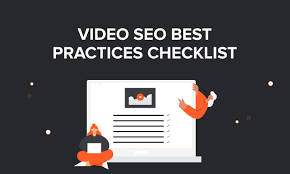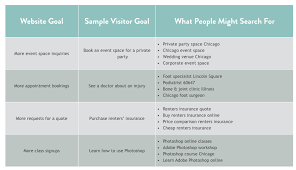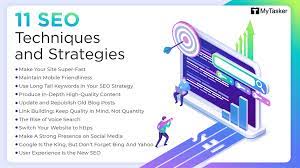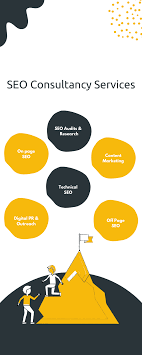Mastering SEO Best Practices: A Guide to Optimising Your Online Presence
The Ultimate Guide to SEO Best Practices
Search Engine Optimization (SEO) is crucial for improving your website’s visibility and ranking on search engine results pages. By following best practices, you can enhance your website’s performance and attract more organic traffic. Here are some essential SEO best practices to help you achieve success:
Conduct Keyword Research
Keyword research is the foundation of any successful SEO strategy. Identify relevant keywords and phrases that your target audience is searching for. Use tools like Google Keyword Planner or SEMrush to discover high-volume keywords with low competition.
Optimise On-Page Elements
Optimise your title tags, meta descriptions, headings, and content with targeted keywords. Ensure that your website’s structure is user-friendly and easy to navigate. Use descriptive URLs and include alt text for images to improve accessibility.
Create High-Quality Content
Produce engaging and informative content that adds value to your audience. Regularly update your website with fresh, relevant content that addresses the needs of your users. Incorporate keywords naturally within your content while maintaining readability.
Build Quality Backlinks
Backlinks from reputable websites can significantly boost your site’s authority and credibility in the eyes of search engines. Focus on acquiring quality backlinks from relevant sources within your industry through guest posting, outreach campaigns, or social media engagement.
Optimise for Mobile Devices
In today’s mobile-centric world, it’s essential to ensure that your website is mobile-friendly and responsive across all devices. Google prioritises mobile-friendly websites in its search rankings, so optimising for mobile can improve your SEO performance.
Monitor Performance and Analytics
Regularly monitor your website’s performance using tools like Google Analytics or Search Console. Track key metrics such as organic traffic, click-through rates, bounce rates, and keyword rankings to measure the effectiveness of your SEO efforts. Use this data to make informed decisions and adjustments to your strategy.
Stay Updated with Algorithm Changes
Search engine algorithms are constantly evolving, so it’s crucial to stay informed about industry trends and updates. Keep abreast of algorithm changes from major search engines like Google and adapt your SEO strategy accordingly to maintain visibility and ranking.
Incorporating these SEO best practices into your digital marketing strategy can help you achieve long-term success in driving organic traffic to your website and improving overall online visibility.
Six Key Benefits of SEO Best Practices for Elevating Your Online Presence
- Improved website visibility on search engine results pages
- Increased organic traffic to your website
- Enhanced user experience through optimised content and structure
- Higher chances of reaching and engaging with your target audience
- Boosted credibility and authority in your industry
- Long-term sustainable growth for your online presence
Four Drawbacks of SEO Best Practices: Time Investment, Intricacy, Rivalry, and Expense
Improved website visibility on search engine results pages
Implementing SEO best practices leads to a significant pro: improved website visibility on search engine results pages. By optimising on-page elements, conducting keyword research, and building quality backlinks, your website is more likely to rank higher in search results. Increased visibility means that your website will be more easily discovered by users searching for relevant keywords, ultimately driving organic traffic and potential customers to your site. With improved visibility, your brand’s online presence strengthens, establishing credibility and trust among your target audience.
Increased organic traffic to your website
Implementing SEO best practices can lead to a significant increase in organic traffic to your website. By optimising your site for search engines, you make it easier for potential customers to find you online. Improved visibility in search engine results pages means more users are likely to click on your website, resulting in a higher volume of organic traffic. This not only boosts your online presence but also enhances the opportunity to attract quality leads and convert them into loyal customers.
Enhanced user experience through optimised content and structure
By implementing SEO best practices such as optimising content and website structure, businesses can greatly enhance the user experience for their visitors. Well-structured and optimised content not only helps search engines understand the relevance of a website but also makes it easier for users to navigate and find the information they need. A clear website structure, coupled with quality content that is easy to read and engaging, ensures that visitors have a positive interaction with the site, leading to increased engagement, longer session durations, and ultimately higher conversion rates. Prioritising user experience through SEO best practices results in a win-win situation where both search engines and visitors are satisfied with the website’s content and functionality.
Higher chances of reaching and engaging with your target audience
By implementing SEO best practices, you significantly increase your chances of reaching and engaging with your target audience. Through strategic keyword targeting, optimised on-page elements, and quality content creation, your website becomes more visible to users actively searching for relevant information or products. By appearing higher in search engine results pages, you attract organic traffic from individuals already interested in what you offer, leading to improved engagement and conversions. SEO best practices ensure that your online presence resonates with your target audience, ultimately enhancing brand visibility and fostering meaningful connections with potential customers.
Boosted credibility and authority in your industry
Implementing SEO best practices can significantly boost your credibility and authority within your industry. By optimising your website for search engines, you demonstrate to both users and search engines that your content is relevant, trustworthy, and valuable. As you climb the search engine rankings through ethical SEO strategies, you establish yourself as a reputable source of information in your field. This enhanced credibility not only attracts more organic traffic but also instils confidence in potential customers and partners, ultimately strengthening your position as a trusted leader in the industry.
Long-term sustainable growth for your online presence
Implementing SEO best practices offers the advantage of long-term sustainable growth for your online presence. By following strategies such as conducting thorough keyword research, creating high-quality content, and building quality backlinks, you can establish a strong foundation that continuously attracts organic traffic to your website over time. This sustained visibility and relevance in search engine results pages not only drive consistent traffic but also enhance your brand’s credibility and authority in the digital landscape. Embracing SEO best practices ensures that your online presence grows steadily and remains resilient against market fluctuations, ultimately leading to lasting success for your business.
Time-Consuming
Implementing SEO best practices can be a time-consuming endeavour as it demands dedicated effort to conduct thorough keyword research, optimise website content, and cultivate quality backlinks. The process of identifying relevant keywords, crafting engaging content, and establishing a strong backlink profile requires meticulous attention to detail and consistent investment of time. While the results of effective SEO implementation can be highly rewarding in terms of increased organic traffic and improved search engine rankings, the time and effort required to execute these best practices should not be underestimated.
Complexity
Navigating the world of SEO can be daunting due to its inherent complexity. The landscape is constantly evolving with intricate algorithms and technical nuances that can pose a significant challenge for newcomers to the field. Keeping up with the ever-changing nature of SEO requires a deep understanding of search engine algorithms and a knack for technical details, which may overwhelm those who are just starting their SEO journey. The complexity of SEO underscores the importance of seeking guidance from experienced professionals or investing time in thorough learning to effectively harness the power of search engine optimisation.
Competition
In the realm of SEO best practices, one significant challenge lies in the fierce competition within the digital landscape. Established websites with robust SEO strategies often dominate search engine rankings, posing a hurdle for newer or less optimised sites to climb higher in visibility. The competitive nature of the online environment demands continuous effort and innovation to surpass well-established competitors and secure a prominent position in search results.
Costly
One significant drawback of adhering to SEO best practices is the potential cost involved. For small businesses or individuals with limited budgets, investing in professional SEO services or advanced tools to implement these practices effectively can be financially burdensome. The expense of hiring experts or purchasing premium software may deter some from fully optimising their websites for search engines, limiting their ability to compete effectively in the digital landscape. This financial barrier can pose a challenge for those looking to improve their online visibility and organic traffic through SEO strategies.









